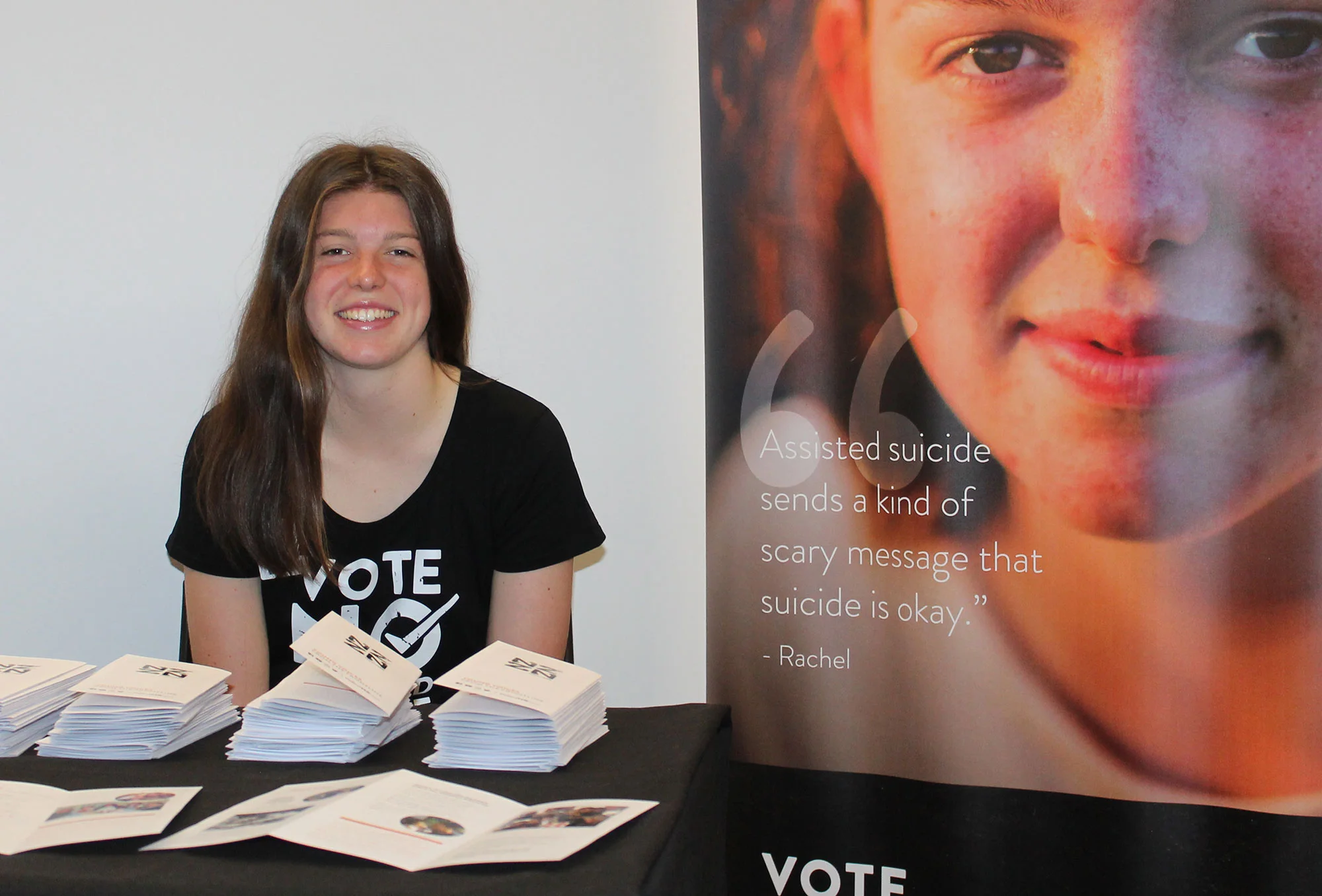We all have a stake in the End of Life Choice Bill conversation, but for some people, this Bill is more than a thought experiment – it is a clear and present danger. For this reason, some of the people featured in the #DefendNZ documentaries are in the Capital to make themselves available to speak personally with MPs and media.
Included in the contingent is Palmerston North’s Vicki Walsh, who has an advanced form of the same brain tumour that Lecretia Seales was diagnosed with in 2011. Walsh continues to outlive her prognosis. She was given a maximum of 12-14 months and is still alive eight years later. Exposed to high-profile cases of others seeking euthanasia or assisted suicide, she has felt extremely vulnerable – like she was being selfish by not ending her life. Laws send messages, and they have an impact beyond those who campaign for them. Vicki doesn’t want the law telling her that her life is of lesser value. She tells her story at www.defendnz.co.nz/vicki.
Also present is Hamilton’s Kylee Black. Black has a rare connective tissue disorder that is incurable and life-threatening. She qualifies under the Bill before government. Kylee hears a lot of people talk about how the Bill gives you a “choice”. But from her experience of living with a serious medical condition, choice is a relative term. When you live your life heavily reliant on other people and require costly treatments to be kept alive, having the legal option to end your life could make you feel pressure to take up the offer. You can hear her story at www.defendnz.co.nz/kylee.
Lastly present are mother and daughter duo, Heather and Rachel Major, who lost husband and father Glenn Major to a terminal brain tumour. Hospice and his doctors gave Glenn six months to live three times over a period of nearly nine years – the first time when daughter Rachel was 18 months old. Prognosis cannot only be a little off, it can be flat out wrong. Glenn died when Rachel was nine years old. Would euthanasia have been legal, Glenn could have ended his life with years still left ahead of him. He would have missed out on so much, as would his wife and young daughter. Rachel, now 16 years old, is advocating for other children and young people that are in a similar position. Their story is told at www.defendnz.co.nz/glenn
Their message is that we must give voice to those who would be most affected by this Bill. That we must examine carefully the experiences of euthanasia and assisted suicide regimes overseas. That together, we all must #DefendNZ.
Walsh, Black and the Major’s are available to meet with MPs and media. This comes ahead of the possible Second Reading of the Bill on Wednesday 22 May. As a nation we will measured by how we treat our most vulnerable members. Putting them at risk is not who we are. Local and international experts tell us euthanasia laws aren’t safe.

